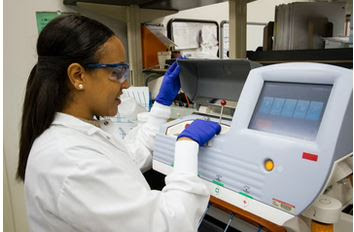What Are Exosomes For Skin?
Exosomes are small, membrane-bound vesicles secreted by most cell types, including cancer cells. They range in size from 30 to 150 nanometers in diameter and contain various bio-molecules, such as proteins, lipids, RNA, and DNA. Exosomes play a role in intercellular communication, as they can be taken up by other cells and transfer their contents, including genetic material, to recipient cells. This transfer of information can affect a huge range of cellular processes that includes proliferation, differentiation, and immune response. Exosomes have been found to have a role in many physiological and pathological processes, including cancer, inflammation, and neurodegenerative diseases, and are being investigated as potential diagnostic and therapeutic targets.
Exosomes are produced by cells through the endocytic pathway. The process begins with forming an early endosome, which then matures into a late endosome that eventually fuses with the cell membrane, releasing the exosome into the extracellular space. Exosomes are found in various bodily fluids, including blood, urine, and breast milk. Their composition varies depending on the originating cell type and the physiological conditions in which they are produced.
Here in this blog we will see what exosomes for skin are and how they can be used in skin care preparations, furthermore the role of exosomes depleted FBS as well.
Exosomes For Skin:
Exosomes are known to play important roles in both physiological and pathological processes. In normal physiological conditions, they are involved in intercellular communication and contribute to various biological processes such as cell growth and differentiation, immunomodulation, and tissue repair. In pathological conditions, exosomes can be involved in the progression of various diseases, such as cancer, neurodegenerative diseases, and infectious diseases.The contents of exosomes, including proteins, lipids, RNA and DNA are being investigated as potential diagnostic and therapeutic targets. Exosomes are used in diagnostic biomarkers for various diseases, as their composition can reflect the physiological state of the cell or tissue from which they were derived. They are also being studied for their potential as drug delivery vehicles, as they can be taken up by recipient cells and deliver their contents to specific targets.
Overall, exosomes are emerging as important players in intercellular communication and have the potential to be used as diagnostic and therapeutic tools in a wide range of diseases. However, further research is needed to fully understand their mechanisms of action and potential applications.
Exosomes are being investigated for their potential use in skincare and dermatology. Studies suggest that exosomes could have several beneficial effects on the skin, such as promoting wound healing, reducing inflammation, and stimulating collagen production.
Exosomes contain various growth factors, cytokines, and other signaling molecules that could promote skin regeneration and wound healing. In one study, exosomes derived from human adipose tissue stem cells were shown to promote the migration and proliferation of skin cells in vitro and accelerate wound healing in mice.
Exosomes are also being investigated for their potential anti-inflammatory effects on the skin. Inflammation is common in many skin conditions, including acne, psoriasis, and eczema. In one study, exosomes derived from mesenchymal stem cells were shown to reduce inflammation and promote skin regeneration in mice with atopic dermatitis.
Finally, exosomes are being studied for their potential to stimulate collagen production in the skin. Collagen is an important structural protein that gives the skin strength and elasticity. As we age, collagen production decreases, leading to the development of fine lines and wrinkles. Exosomes derived from mesenchymal stem cells have been shown to stimulate collagen production in vitro and in vivo, suggesting that they could be used as a cosmetic ingredient to improve the appearance of aging skin.
Overall, while research into the potential use of exosomes in skin care and dermatology is still in its early stages, preliminary studies suggest that exosomes could have several beneficial effects on the skin, such as promoting wound healing, reducing inflammation, and stimulating collagen production.
Exosomes are small extracellular vesicles produced by cells and released into the extracellular space. They play a critical role in intercellular communication and are involved in physiological and pathological processes. Exosomes have been found in various bodily fluids, including blood, urine, and breast milk. Their composition varies depending on the originating cell type and the physiological conditions in which they were produced.
Exosomes have been studied extensively for their potential as diagnostic and therapeutic tools. The contents of exosomes, including proteins, lipids, RNA, and DNA, are being investigated as potential biomarkers for various diseases, as their composition can reflect the physiological state of the cell or tissue from which they were derived. Exosomes are also being studied as potential drug delivery vehicles, as they can be taken up by recipient cells and deliver their contents to specific targets.
In addition, exosomes are being investigated for their potential use in skincare and dermatology. Studies suggest that exosomes could have several beneficial effects on the skin, such as promoting wound healing, reducing inflammation, and stimulating collagen production.
While exosome research is still in its early stages, preliminary studies suggest they could have many potential applications in medicine and biology. However, further research is needed to fully understand their mechanisms of action and potential clinical applications. Overall, exosomes are a promising area of research with the potential to significantly impact the fields of diagnostics, therapeutics, and regenerative medicine.





Comments
Post a Comment